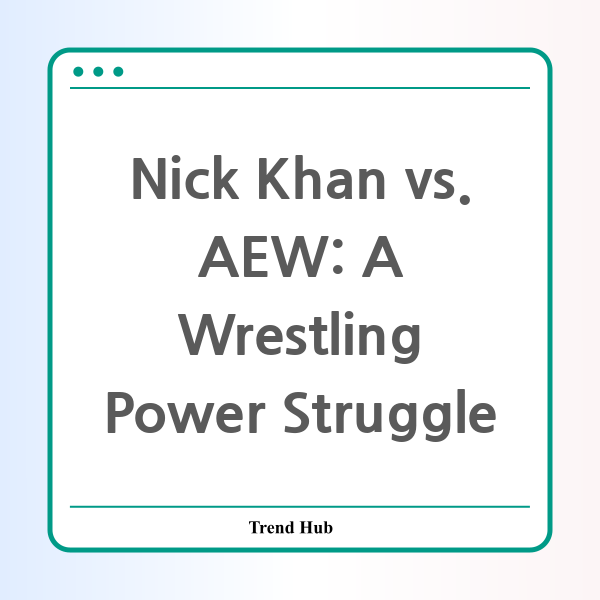* This website participates in the Amazon Affiliate Program and earns from qualifying purchases.

In the world of professional wrestling, few names are as prominently discussed as Nick Khan, the President of WWE. Recently, his comments regarding All Elite Wrestling (AEW) have ignited a storm of opinions and reactions, particularly from talent who have crossed the divide between the two promotions.
On a recent podcast appearance, Khan stated that he anticipated several talents from AEW would migrate back to WWE as their contracts allow. This assertion did not sit well with AEW star Ricochet, who made headlines with a sharp rebuttal on social media. This unexpected exchange not only highlights the competitive landscape of wrestling but also provokes further contemplation regarding talent management in the wrestling industry.
One of the pivotal moments in this ongoing saga was Khan’s assertion that WWE is often perceived as the underdog in the wrestling business. “We’re always the underdog at WWE,” Khan explained, indicating that their perceived shortcomings fuel their drive to outperform expectations. This mentality, he argues, is beneficial as it allows WWE to continually surprise audiences and maintain a robust narrative.
However, Khan's comments extend beyond just competition; they delve into WWE's approach to talent management. Unlike other promotions, Khan insists that WWE does not ‘sign and bench’ wrestlers, meaning that they commit to using everyone they sign actively. This comment presents an intriguing contrast to AEW's practices and raises discussions about the welfare and management of wrestlers in both organizations.
Ricochet, who found a new home in AEW after an extended period in WWE, reacted to Khan's statements about AEW talent eager to join WWE. He took to social media to express his disdain for how Khan framed the situation, which included a candid remark: “these guys fucking suck.” This raw response underscores the emotional landscape that wrestlers navigate when it comes to their careers and the organizations they choose to represent.
Such exchanges reveal not just rivalry between WWE and AEW but also shine a light on the broader implications for wrestlers caught in the crossfire. The issue of where wrestlers land – whether it be WWE or AEW – extends beyond mere contractual obligations; it involves questions about creative freedom, talent utilization, and the culture within these wrestling organizations.
The future of professional wrestling remains uncertain as more talents become free agents. With Khan's assertion that many AEW wrestlers will move back to WWE, fans are left to ponder the stability of AEW's talent roster. Will the allure of WWE's platform finally compel some of wrestling's top performers to shift allegiances? Or will wrestlers prioritize creative freedom and loyalty to their current promotions?
As discussions surrounding Nick Khan's provocative statements continue, it becomes clear that the dynamics of professional wrestling are changing. With fans and talents alike weighing in on these debates, one thing is certain: the competition between WWE and AEW is far from over, and the wrestling community is watching closely.
What do you think about Nick Khan's comments and Ricochet's fiery response? How will this rivalry shape the future of professional wrestling? Join the conversation below and share your thoughts!
* This website participates in the Amazon Affiliate Program and earns from qualifying purchases.